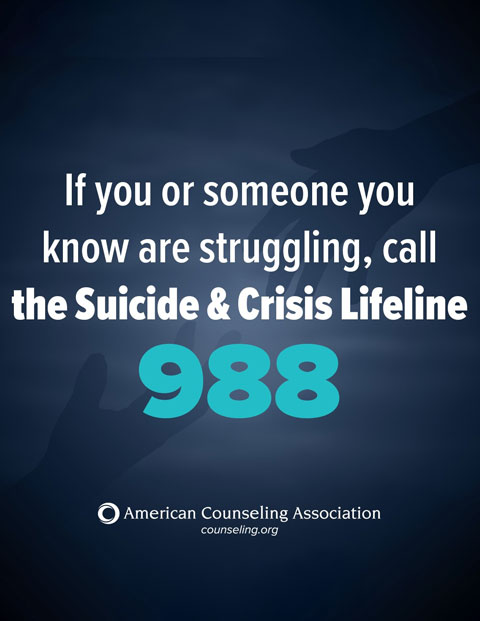
What Is a Professional Counselor?
Professional counselors help people gain personal insights, develop strategies and come up with real-life solutions to the problems and challenges they face in every area of life. As trained and credentialed professionals, they accomplish this by getting to know clients, by building safe, positive relationships and suggesting tools and techniques they believe will benefit clients.

Call or Text 988
The 988 Lifeline is a suicide and crisis lifeline, which uses a network of 200+ local crisis centers to connect people with 24/7 free and confidential support.
The 988 Suicide & Crisis Lifeline’s specialized support for LGBTQ+ youth is at risk. Please advocate for LGBTQ+ youth mental health and tell your legislators to support and continue to fund the 988’s specialized support for LGBTQ+ youth.
ACA SUICIDE RESOURCES HELP ONLINE
